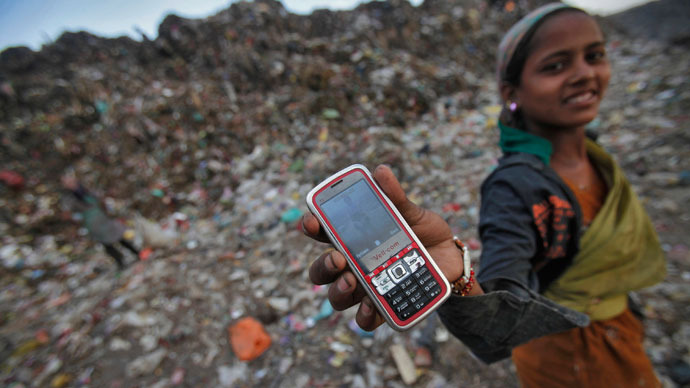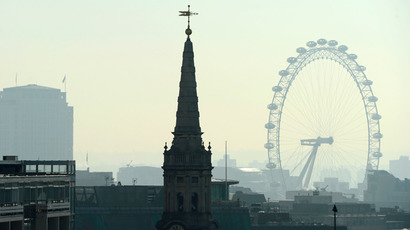UN: More people have access to cellphones than toilets

Out of the planet’s seven billion people, six have got mobile phones while only 4.5 have access to proper sanitation and can actually use toilets or latrines, the United Nations says.
To improve the situation with basic sanitation for some 2.5 billion people around the world the organization is launching a global campaign, with awareness being raised as the World Water Day is marked.
It is 2013, but over one billion people still have no proper sanitary conditions. Lack of such development in some areas poses a serious threat to the health of millions of people as no proper hygiene results in spread of dangerous diseases, the UN says.
“Let’s face it – this is a problem that people do not like to talk about,” said Jan Eliasson, United Nations Deputy Secretary-General. "But it goes to the heart of ensuring good health, a clean environment and fundamental human dignity for billions of people – and achieving the Millennium Development Goals (MDG),” he told a press conference on Thursday, citing the UN’s official website.
The countries where open defecation is most widely practiced are the same countries with the highest numbers of child deaths under the age of five, high levels of under-nutrition and poverty, and large wealth disparities.
World leaders adopted the MDG back in 2000 and so far, thanks to joint efforts, the proportion of people without access to improved sources of water has been halved. Poverty rates have also been reduced by about 50 percent.
“Yet, with just over 1,000 days remaining before the 2015 deadline for achieving the MDGs, we are not even close to reaching the goal on proper sanitation,” Eliasson admitted in his blog published with huffingtonpost.com.
The UN’s call to action aims to improve hygiene, better manage human waste and water-waste, as well as to completely eliminate the practice of open defecation by 2025.

Such insanitary practice - common in parts of Brazil, China, India and some other states in South Asia and sub-Saharan Africa – is among main causes for diarrhea which annually kills over 750,000 of children aged under 5 years old.
In fact, “it is the second largest killer of children under five in the developing world and this is caused largely by poor sanitation and inadequate hygiene,” said Martin Mogwanja, the Deputy Executive Director of the UN Children’s Fund (UNICEF).
Inability to go to the bathroom causes yet another problem: women and girls often become the subject of sexual abuse when they have no choice but “take their private needs to the open,” observed Eliasson.
The UN official labeled the entire sanitation problem "a silent disaster" which is a reflection of the extreme poverty and huge inequalities in today’s world.
Unfortunately, with the current pace of progress the UN sanitation goal will only be achieved in 2075 - which is unacceptable, Mogwanja told reporters on Thursday.
Meanwhile, the global economic gains from investing in sanitation and clean water are estimated at $260 billion per year, the UN said as cited by AP. Poor sanitation, on the contrary, harms economic growth and costs counties up to 7 percent of their GDP.














